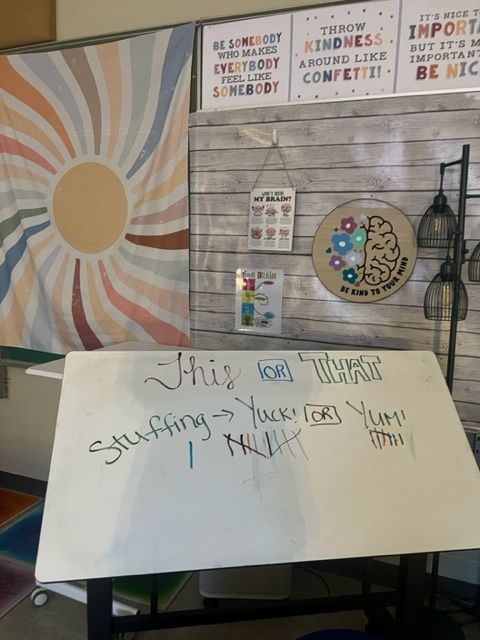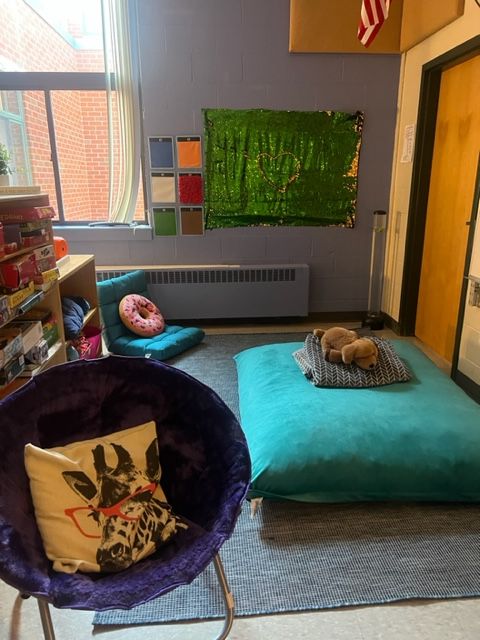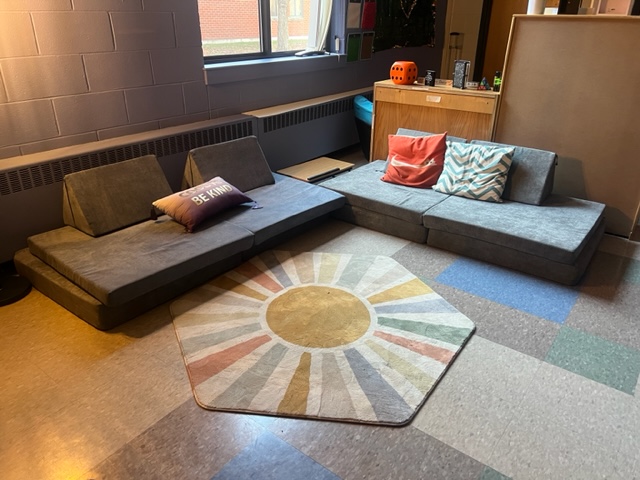
The Wellness Center at WCS provides a safe, supportive and easily accessible environment where students can go build their social/emotional toolbox, discuss a variety of issues and have a space, if needed, to reset. This space is for all students and can be accessed for not only a private discussion, but also for group-related activities, class work and test-taking. By providing these resources for 5th and 6th graders, our goal is to be proactive and preventative, by establishing and reinforcing coping skills already learned.
With comfortable couches, soft lighting, nature sounds, healthy snacks, and an array of sensory activities like puzzles, games and flexible seating, the Wellness Center offers overwhelmed and dysregulated students a place to relax and refocus, practice healthy coping mechanisms and/or talk with a counselor. It gives students access to learn skills to manage their emotions with an adult, so they can transfer those skills across settings and improve their ability to self-regulate independently.
Research suggests (Education and Treatment of Children) suggests that Wellness Centers in schools can help reduce students anxiety and depression. We must recognize the importance of timely access to mental health care and wellness programs, and the pivotal role of schools in increasing that access. Youth are 21 times more likely to receive access to the mental health services they want and need when mental health and wellness services are provided at school.
Wellness centers can significantly reduce the stigma associated with seeking mental health services, as well as increase attendance and the likelihood of graduation. Wellness centers promote an inclusive school culture and ensure school is a place where all youth belong and are welcomed. There is strong evidence in support of these investments at schools. A recently released comprehensive analysis of 213 studies of school-based social and emotional learning initiatives and programs found that youth enjoyed improved social skills, attitudes and behaviors, recovered more quickly from trauma and saw dramatic improvements in academic achievement as a result of school based social-emotional and mental health programs. The Mental Health Oversight Accountability Commission published a report about the needs and roles of schools as centers of wellness. The full report is available here.



